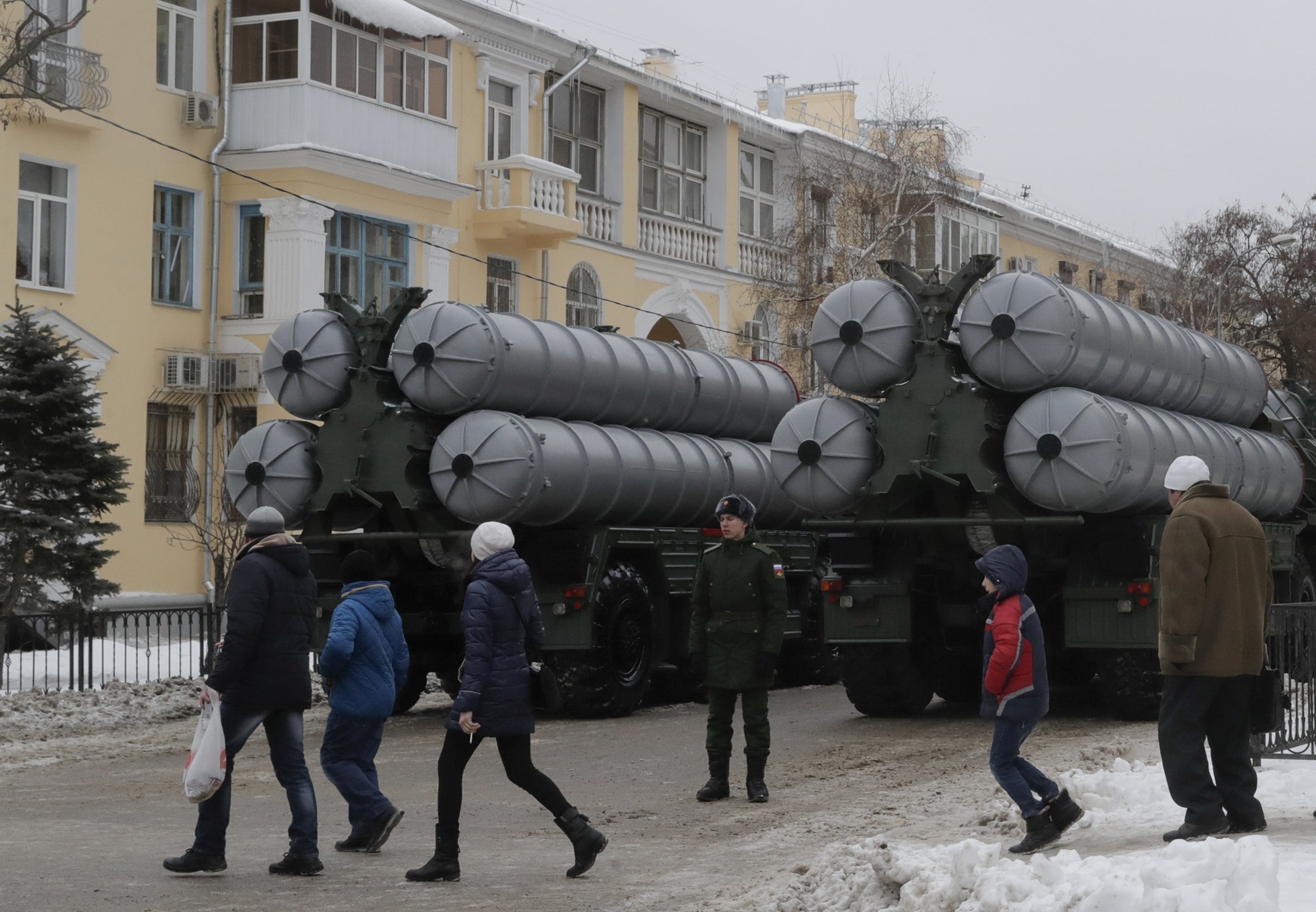Turkey considering ‘alternatives’ to US fighter jet amid Russian offer
Nato member Turkey enters ‘uncharted terrain’ after delivery of Russian air-defence system
Your support helps us to tell the story
From reproductive rights to climate change to Big Tech, The Independent is on the ground when the story is developing. Whether it's investigating the financials of Elon Musk's pro-Trump PAC or producing our latest documentary, 'The A Word', which shines a light on the American women fighting for reproductive rights, we know how important it is to parse out the facts from the messaging.
At such a critical moment in US history, we need reporters on the ground. Your donation allows us to keep sending journalists to speak to both sides of the story.
The Independent is trusted by Americans across the entire political spectrum. And unlike many other quality news outlets, we choose not to lock Americans out of our reporting and analysis with paywalls. We believe quality journalism should be available to everyone, paid for by those who can afford it.
Your support makes all the difference.A defiant Turkey said it was considering “alternatives” to US fighter jets, including Russian models or making its own, a day after Washington suspended it from a programme to build and deploy advanced warplanes.
The US punished Turkey for its purchase of a Russian air defence system by pushing it out of a long-term programme to upgrade Nato forces with F-35 advanced fighter jets.
The Kremlin quickly attempted to exploit the disagreement, which has already drawn Ankara closer to Moscow, offering to sell Turkey Russian fighter planes.
Ismail Demir, head of Turkey’s defence industries, responded that “all kinds of options are on the table,” according to the official Anadolu news agency.
“Turkey will continue to evaluate alternatives,” he said.
The months-long dispute had pushed already strained relations between Turkey and the US to a new low.
Analysts say Washington sought to avoid having to make a decision on the matter. But after the delivery of parts for the Russian S-400 missile system began late last week, the White House was forced to act. It announced late on Wednesday that it was ending Turkey’s involvement in the programme to build F-35s, citing security concerns.

“Turkey’s decision to buy the Russian S-400 air defence systems renders its continued involvement with the F-35 impossible,” said a White House statement. “The F-35 cannot coexist with a Russian intelligence collection platform that will be used to learn about its advanced capabilities.”
The US is expected to punish Turkey with sanctions for doing business with a Russian arms industry blacklisted since the invasion and annexation of parts of Ukraine.
Ankara and Washington are at odds over a number of issues, including US support for the separatist-minded Kurds in Syria.
“This is another step in the unfolding disaster that is Turkish-US relations,” said Nicholas Danforth, a Turkey specialist at the German Marshall Fund think tank.
Turkey’s foreign ministry has described the removal as “unfair”, but many of the country’s officials were holding out hope the damage could be mitigated. Recep Tayyip Erdogan and Donald Trump share a warm rapport, and it was hoped that the White House would defer or suspend any moves that would severely damage Turkey’s fragile economy.
“If you believe what Erdogan said, Trump [told him] there won’t be sanctions,” said Mr Danforth. “If you don’t believe that, they’re coming soon.”
But uncertainty remains, and many analysts were warning that powerful lobbies in Washington, already hostile to Turkey, would push for harsher penalties. “This is indeed uncharted terrain,” said Selim Sazak, a Turkey specialist at Brown University. “It is a game of chicken that went terribly wrong. Neither Ankara nor Washington thought that the other could go as far as it did.”
Still, few other Nato members appeared as eager as the US to punish Turkey. The organisation’s secretary general, Jens Stoltenberg, speaking at the Aspen Security Forum, called Turkey an important Nato member.
“As long as that issue’s not solved, we need to minimise the negative consequences,” he was quoted as saying.
Turkey sought to purchase the S-400s after several western countries pulled their Patriot air defence batteries from the country’s southeast in 2015 over a political dispute. Mr Erdogan has insisted the US would not give it favourable terms for the purchase of its own Patriots, and so turned to Moscow, which it was negotiating with over Syria in the absence of robust US involvement.
Other Nato countries have purchased Russian weapons in the past, but Pentagon officials have argued that over time, the advanced S-400 could be used to track and monitor the F-35 and undermine its stealth capabilities to the advantage of the Russians.
“Ankara backed itself into a wall over Syria, where its subsequent actions forced it into engaging with Russia, and mobilised its own public in a way that made backing out impossibly costly,” said Mr Sazak. “Ankara also overestimated the extent to which it could play Trump.”

Join our commenting forum
Join thought-provoking conversations, follow other Independent readers and see their replies
Comments